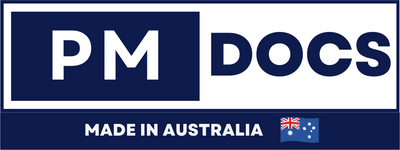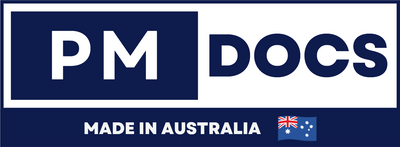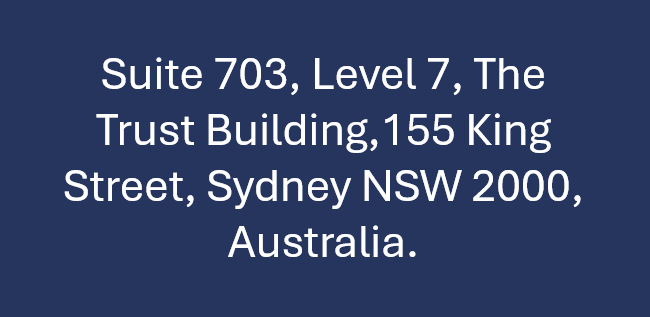Australian Businesses With ISO Accreditation Case Studies
The Gold Standard Down Under: Australian Businesses Thriving With ISO Accreditation
In today's competitive global landscape, trust, efficiency, and resilience are not just buzzwords – they are fundamental pillars of business success. For Australian enterprises, one robust framework that consistently delivers on these promises is ISO accreditation. Far from being a mere paper exercise, ISO standards represent a commitment to world-class practices in quality, environmental management, safety, and information security.

ISO (International Organization for Standardization) develops and publishes international standards that provide guidelines and specifications for products, services, and systems. Achieving accreditation means an independent body has verified that a business meets the rigorous requirements of a specific ISO standard. For Australian businesses, this translates into enhanced credibility, improved operational performance, reduced risks, and often, access to new markets.
But what does this look like in practice? How do businesses on the ground, from bustling cities to remote regions, truly benefit? Let's delve into some compelling case studies of Australian businesses that have leveraged ISO accreditation to transform their operations and achieve remarkable success.
Case Studies: Australian Innovation Meets Global Standards
Here, we explore a diverse range of Australian businesses, highlighting their journey to ISO accreditation and the tangible benefits they've reaped.
Case Study 1: Quantum Engineering Solutions – Sydney, NSW
-
Industry: Advanced Manufacturing & Precision Engineering
- ISO Standard Achieved: ISO 9001:2015 (Quality Management Systems)
Background: Quantum Engineering Solutions, a medium-sized firm based in Sydney, specialised in manufacturing high-precision components for the aerospace and defence sectors. While their technical expertise was undeniable, they faced challenges with inconsistent product quality, leading to occasional client rework requests and difficulty securing lucrative government contracts that explicitly demanded ISO 9001 certification. Their internal processes were often reliant on individual knowledge rather than documented, systematic approaches.
The Journey to ISO 9001: Recognising the need for a more structured approach and to unlock new market opportunities, Quantum Engineering Solutions committed to ISO 9001 accreditation. They established a dedicated quality management team, invested in staff training, and embarked on a comprehensive review of their production lifecycle, from design and procurement to manufacturing and final inspection. This involved creating detailed process maps, standard operating procedures, and a robust system for document control and corrective actions.
Key Outcomes & Benefits:
-
Enhanced Product Quality: Streamlined processes and rigorous quality checks led to a significant reduction in defects and rework, improving client satisfaction.
-
Market Access & Competitive Edge: Successfully tendered for and secured several multi-million dollar government and defence contracts, which previously required ISO 9001.
-
Operational Efficiency: Identifying and eliminating bottlenecks in their production line, leading to faster turnaround times and reduced operational costs.
- Improved Employee Engagement: Employees felt a greater sense of ownership and clarity regarding their roles within a well-defined quality framework.
Quote: "Achieving ISO 9001 wasn't just about a certificate; it fundamentally changed how we operate. It gave us the structure we needed to grow, reduce errors, and ultimately prove our commitment to excellence to our most demanding clients." – David Chen, Operations Director, Quantum Engineering Solutions.
Case Study 2: EcoCycle Australia – Melbourne, VIC
-
Industry: Environmental Services & Waste Management
- ISO Standard Achieved: ISO 14001:2015 (Environmental Management Systems)
Background: EcoCycle Australia, a rapidly growing waste management and recycling company in Melbourne, was experiencing increased scrutiny from local councils and environmental bodies. While committed to sustainable practices, their environmental efforts were somewhat ad-hoc and reactive. They struggled with demonstrating quantifiable environmental performance and faced public image concerns related to their operations. High energy consumption and waste disposal costs were also impacting their bottom line.
The Journey to ISO 14001: EcoCycle embarked on the ISO 14001 journey to formalise their environmental commitments and improve their sustainability performance. They conducted a thorough environmental impact assessment, identifying significant aspects like energy use, water consumption, and waste generation. An Environmental Management System (EMS) was developed, including targets for reducing their carbon footprint, increasing recycling rates, and preventing pollution. Regular audits and reviews were integrated into their system.
Key Outcomes & Benefits:
-
Reduced Environmental Footprint: Implemented new processes that significantly reduced energy consumption (e.g., optimising vehicle routes, upgrading machinery) and increased the diversion of waste from landfill.
-
Cost Savings: Lower energy bills, reduced waste disposal fees, and more efficient resource use directly contributed to financial savings.
-
Enhanced Public Trust & Brand Reputation: Gained public recognition as an environmentally responsible company, strengthening their brand and attracting ethically conscious clients.
- Regulatory Compliance: Ensured full compliance with all relevant environmental laws and regulations, mitigating the risk of fines and penalties.
Quote: "ISO 14001 provided a fantastic framework for us to turn our environmental ambitions into measurable actions. It's not just good for the planet; it's proving to be incredibly good for our business too, boosting our reputational capital and saving us money." – Sarah Jenkins, CEO, EcoCycle Australia.
Case Study 3: SecureNet Innovations – Brisbane, QLD
-
Industry: Information Technology & Cybersecurity Consulting
- ISO Standard Achieved: ISO 27001:2013 (Information Security Management Systems)
Background: SecureNet Innovations, a Brisbane-based IT consulting firm specialising in cybersecurity solutions, found itself in a paradoxical situation. They were advising clients on data security but struggled to demonstrate their own internal information security posture to larger, enterprise-level clients and government agencies. Concerns about client data privacy, potential data breaches, and the need to differentiate themselves from a crowded market were pressing issues.
The Journey to ISO 27001: Recognising that their own security needed to be as robust as the solutions they offered, SecureNet committed to ISO 27001. This involved a comprehensive risk assessment to identify potential information security threats and vulnerabilities. They then implemented a robust Information Security Management System (ISMS), covering policies, procedures, technical controls, and employee training across all aspects of their operations. This included everything from access control to incident response and business continuity planning.
Key Outcomes & Benefits:
-
Robust Information Security: Developed a world-class security framework that significantly reduced the risk of data breaches and cyber incidents.
-
Increased Client Confidence: Attracted and secured high-value contracts with major financial institutions and government departments that required ISO 27001 certification from their vendors.
-
Competitive Differentiation: Stood out in the competitive IT market by demonstrating an unwavering commitment to data protection.
- Enhanced Operational Resilience: Developed strong incident response plans, ensuring business continuity even in the face of security challenges.
Quote: "For a cybersecurity company, trust is everything. ISO 27001 was the strongest statement we could make about our commitment to protecting information. It unlocked doors to clients we previously couldn't even approach." – Mark Peterson, CTO, SecureNet Innovations.
Case Study 4: BuildRight Constructions – Perth, WA
-
Industry: Commercial & Residential Construction
- ISO Standard Achieved: ISO 45001:2018 (Occupational Health & Safety Management Systems)
Background: BuildRight Constructions, a mid-sized construction company operating across Western Australia, faced the inherent safety challenges of the construction industry. They experienced a higher-than-desired rate of workplace incidents, leading to rising insurance premiums, project delays, and difficulty attracting and retaining skilled tradespeople due to safety concerns. Their existing safety protocols were largely reactive rather than proactive.
The Journey to ISO 45001: BuildRight's leadership decided to pursue ISO 45001 to transform their safety culture and performance. They implemented a comprehensive Occupational Health and Safety (OH&S) Management System, focusing on hazard identification, risk assessment, and proactive control measures. This involved extensive employee training, establishing clear roles and responsibilities, developing emergency preparedness plans, and fostering a culture where all workers felt empowered to report hazards and contribute to safety improvements.
Key Outcomes & Benefits:
-
Drastically Reduced Incident Rates: A proactive safety approach led to a significant reduction in workplace accidents and injuries.
-
Lower Insurance Premiums: Their improved safety record resulted in tangible savings on workers' compensation and liability insurance.
-
Enhanced Worker Morale & Retention: Employees felt safer and more valued, leading to increased job satisfaction and reduced staff turnover.
- Preferred Contractor Status: Became a preferred supplier for projects with stringent safety requirements, including large infrastructure and mining contracts.
Quote: "Safety is paramount in construction. ISO 45001 gave us the framework to truly embed safety into every aspect of our business. It's not just about compliance; it's about protecting our people and building a sustainable future for our company." – Maria Rodriguez, Managing Director, BuildRight Constructions.
Summary Of Case Studies
| Business Name | Industry | ISO Standard(s) Achieved | Key Benefit |
|---|---|---|---|
| Quantum Engineering Solutions | Advanced Manufacturing & Precision Engineering | ISO 9001 | Secured major government contracts |
| EcoCycle Australia | Environmental Services & Waste Management | ISO 14001 | Significant cost savings & enhanced reputation |
| SecureNet Innovations | Information Technology & Cybersecurity | ISO 27001 | Access to high-value enterprise clients |
| BuildRight Constructions | Commercial & Residential Construction | ISO 45001 | Drastically reduced workplace incidents |
Unpacking the Universal Benefits of ISO Accreditation
While each case study highlights specific advantages, there are common threads of benefit that ISO accreditation weaves through any accredited Australian business:
-
Enhanced Reputation & Credibility: ISO certification is an internationally recognised mark of excellence, building trust with customers, partners, and stakeholders.
-
Improved Operational Efficiency: Standardised processes reduce waste, minimise errors, and optimise resource utilisation, leading to cost savings.
-
Reduced Risks: Proactive identification and mitigation of risks (quality, environmental, safety, security) protect the business from financial, legal, and reputational damage.
-
Increased Market Access: Many large organisations, government bodies, and international markets require ISO certification for tenders and partnerships.
-
Greater Customer Satisfaction: Consistent delivery of high-quality products or services leads to happier, more loyal customers.
-
Regulatory Compliance: ISO standards often align with and help businesses meet local and national regulatory requirements.
- Culture of Continuous Improvement: The management system framework encourages ongoing review, measurement, and enhancement of processes.
Common ISO Standards For Australian Businesses
A brief overview of some of the most widely adopted ISO standards across Australia:
| ISO Standard | Description | Typical Industries |
|---|---|---|
| ISO 9001:2015 | Quality Management Systems – Ensures consistent quality in products/services. | Manufacturing, Construction, Services, Technology, Government, Logistics – virtually all industries. |
| ISO 14001:2015 | Environmental Management Systems – Helps manage environmental responsibilities. | Mining, Waste Management, Manufacturing, Agriculture, Energy, Government. |
| ISO 45001:2018 | Occupational Health and Safety Management Systems – Reduces workplace risks. | Construction, Manufacturing, Transport, Healthcare, Retail, Any industry with physical operations. |
| ISO 27001:2013 | Information Security Management Systems – Protects sensitive information. | IT, Finance, Healthcare, Government, Legal, Any business handling personal or confidential data. |
| ISO 22000:2018 | Food Safety Management Systems – Ensures food safety throughout the supply chain. | Food Manufacturing, Catering, Hospitality, Food Packaging, Agriculture. |
| ISO 13485:2016 | Medical Devices Quality Management Systems – Specific quality for medical devices. | Medical Device Manufacturing, Design, Distribution. |
The Path To Accreditation: Key Steps For Australian Businesses
While the journey can vary based on the standard and business size, a general roadmap to ISO accreditation typically involves:
-
Leadership Commitment: Secure buy-in from top management for resources and strategic direction.
-
GAP Analysis: Identify current practices and what needs to be changed or developed to meet the chosen ISO standard.
-
System Design & Documentation: Develop processes, policies, and procedures that align with the standard's requirements.
-
Implementation & Training: Roll out the new system and train employees on their roles and responsibilities within it.
-
Internal Audit: Conduct an internal review to assess the effectiveness of the implemented management system.
-
Management Review: Top management reviews the system's performance and identifies areas for improvement.
-
Certification Audit: Engage an independent, accredited certification body for a two-stage external audit.
- Continual Improvement: Regularly review, measure, and enhance the management system to maintain its effectiveness and relevance.
Conclusion
The case studies of Quantum Engineering Solutions, EcoCycle Australia, SecureNet Innovations, and BuildRight Constructions vividly demonstrate that ISO accreditation is a powerful catalyst for growth and resilience. For Australian businesses navigating an increasingly complex world, embracing these internationally recognised standards isn't just about compliance; it's about embedding best practices, fostering a culture of excellence, and unlocking new opportunities.
Whether your focus is on delivering impeccable quality, safeguarding the environment, protecting sensitive information, or ensuring the health and safety of your workforce, an ISO management system provides the structured framework to achieve your goals and stand out as a leader in your field. For Australian businesses ready to elevate their performance and secure their future, the gold standard of ISO accreditation is undoubtedly a strategic investment worth making.




